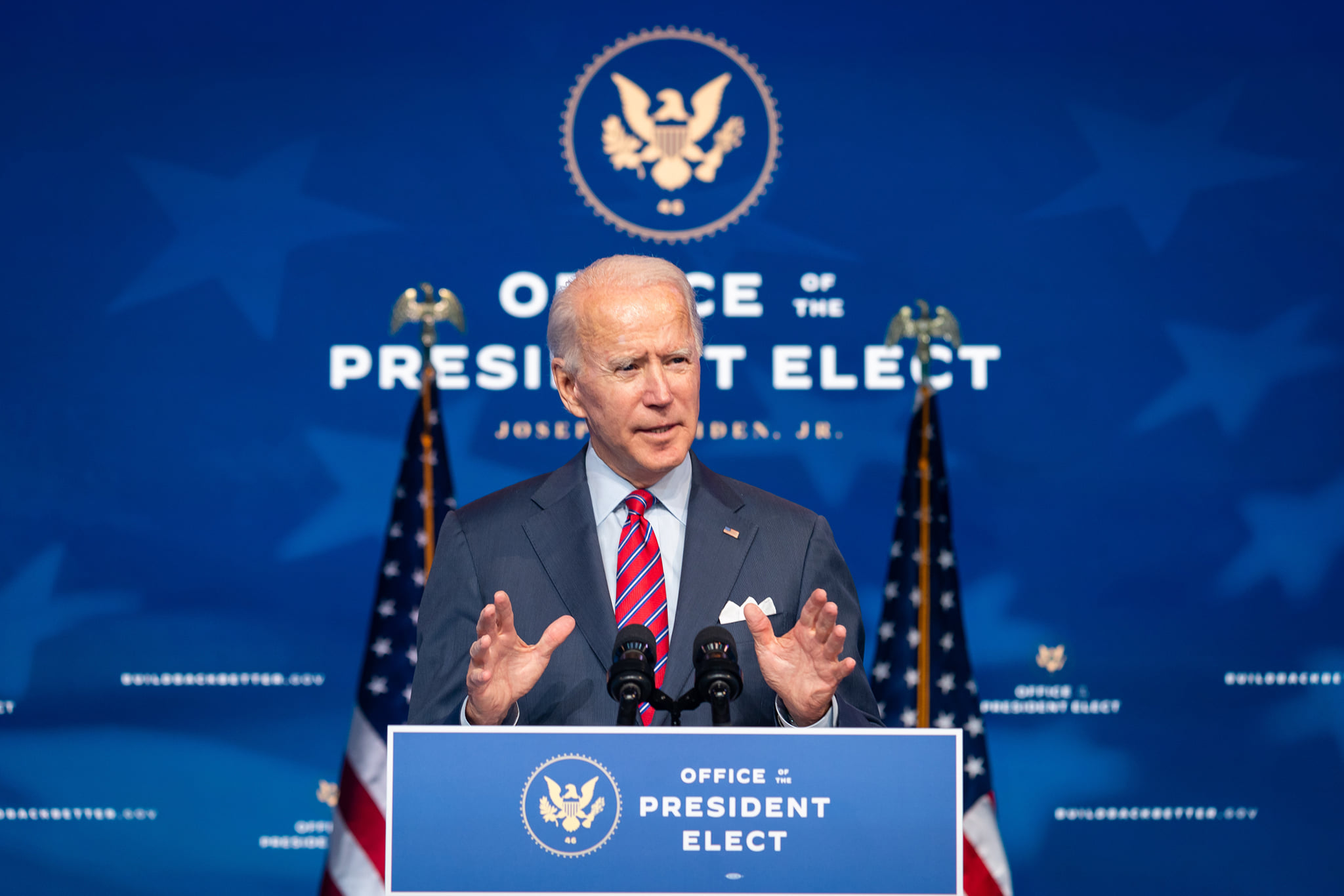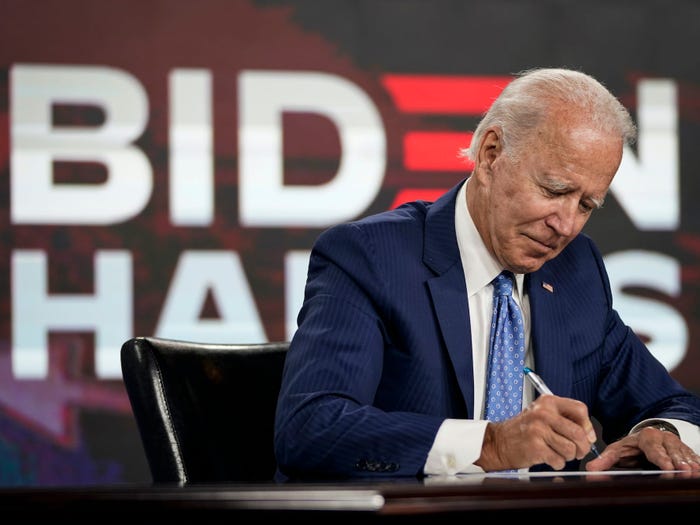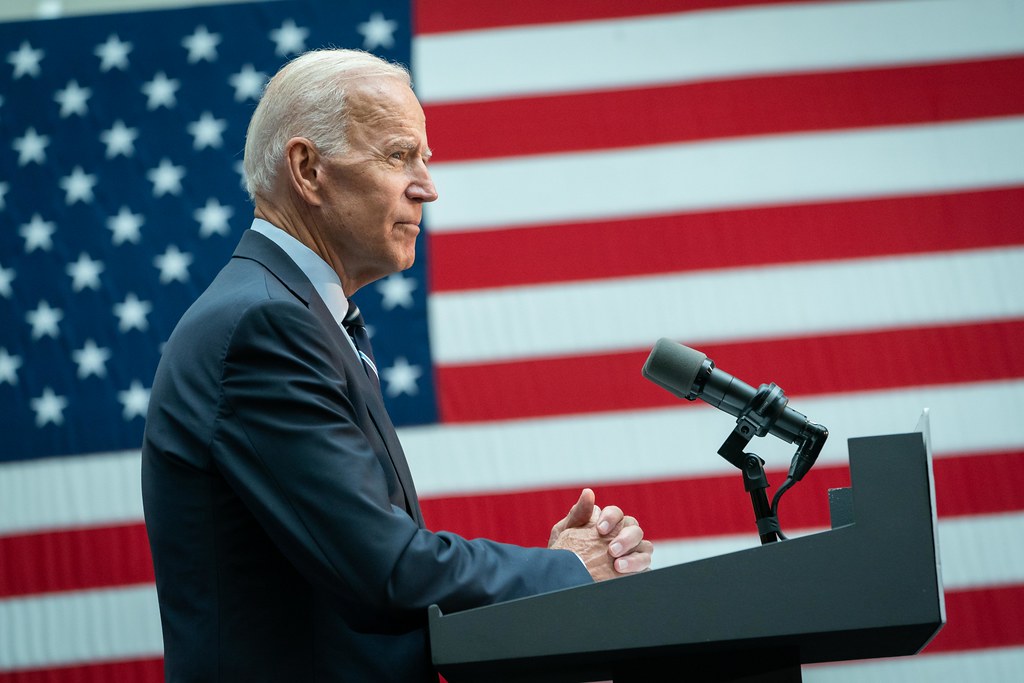
January 21, 2021
Biden Administration Must Go Further in Financial Disclosures to Reveal Possible Conflicts of Interest in Foreign Policy Making, Groups Say in Open Letter
Dozens of foreign policy, faith-based, environmental organizations, and watchdog groups are calling on President Biden to require more thorough screenings for, and disclosures of, possible conflicts of interest among nominees and appointees to the new administration. In a letter sent to the White House today, over 40 groups, including the American Friends Service Committee, Friends of the Earth, Government Accountability Project, Peace Action, Project on Government Oversight, Public Citizen, Win Without War, and the Revolving Door Project say the Personal Financial Disclosures submitted by Biden’s nominees do not include vital information about private sector work and personal investments, posing questions about potential conflicts of interest.

January 21, 2021
LETTER TO PRESIDENT BIDEN ON FINANCIAL DISCLOSURES
You have committed to rooting out the corruption of the previous Trump administration and have proposed sweeping government ethics proposals, which we commend. But in order to stick to these promises and to assure the American public that your administration will put national security concerns over corporate profits or foreign interests, we urge you to, at the very least, direct your nominees and appointees to clearly describe the specific nature of their past work for the private sector actors, especially those under investigation by or in ongoing contracts with the federal government. Earlier this week, the Senate Foreign Relations Committee, recognizing the significance of these conflicts, requested additional information on nominees’ private sector work. The undersigned groups urge you to complete this request swiftly and ensure all of your appointees disclose the full scope and nature of their private sector work.

January 12, 2021
With Bill Burns At CIA, A Hopeful Move Toward Civil Service Revitalization
At the Revolving Door Project, we have frequently emphasized the importance of strengthening the civil service to ensure government works for public service and doesn’t cater to the interest of powerful people and corporations. We warned about how too much reliance on political appointments in the executive branch reduces accountability, citing academic research that political appointees perform worse than career managers. Especially in the Trump era, we have seen numerous examples of political appointees using the government for personal gain. Biden’s selection of William Burns, a career diplomat, as his CIA director should therefore be widely praised by progressives as a step towards restoring the civil service and depoliticizing the American intelligence community.
November 24, 2020
Michèle Flournoy and The Ongoing Influence of WestExec Advisors
As we proposed in the Prospect, Biden’s administration can pursue a progressive national security agenda that prioritizes diplomacy over military action, opposes regime change interventions, reduces the Pentagon’s budget, and condemns governments that violate human rights. But to do so, Biden must also end the defense industry’s influence on the executive branch and turn to individuals without deep conflicts.
September 17, 2020
The Revolving Door Project on Foreign Policy
For too long, American foreign policy decisions have been controlled by the wealthy and well-connected, trampling on the rights and interests of regular people, both at home and abroad. These decisions, including corporate negotiated trade deals and continued engagement in armed conflict abroad, have failed all but a small clique of committed warhawks, defense contractors, and international corporations.

August 18, 2020 | American Prospect
The Way To Enact A Biden Foreign Policy Agenda? Personnel.
Rather than turning to neoliberal veterans of the Clinton and Obama administrations who have bounced between government positions and the private sector, Biden should appoint those with a proven track record of effectively advancing the public interest.
June 17, 2020
“Career” Trade Reps Solicit USMCA Consulting Gigs from Auto Industry
Jason Bernstein and Fred Fischer, both Deputy Assistant U.S. Trade Representatives, reached out to auto industry representatives offering to “assist companies directly with their USMCA implementation needs,” according to Bloomberg’s report. The report did not confirm whether Bernstein and Fischer asked for or received clearance to contact the auto companies, while ethics experts speculate that offering such services while still employed by the government might breach federal ethics requirements.
May 27, 2020
What Might a Biden Administration’s Policy Towards India Look Like?
Former Vice President and current Democratic presidential nominee Joe Biden has often boasted of his considerable foreign policy experience, having served on the Senate Foreign Relations Committee and played an active role in the Obama administration’s foreign policy making. Throughout the 2020 primary, however, Biden’s foreign policy agenda rarely featured. A closer look reveals significant cause for concern. While Biden seeks to show that his foreign policy platform would be more progressive than that of Trump’s, his record has weak spots when it comes to far-right Indian nationalism.
May 11, 2020
Diplomacy by Donors
On December 18, 2019, the United States House of Representatives impeached President Donald Trump for withholding military aid from Ukraine as a means to pressure Vladimir Zelensky to investigate Democratic presidential candidate, Joe Biden. One of the key figures in this scandal was Gordon Sondland, then ambassador to the European Union. Sondland had limited diplomatic experience before his appointment, but he had the privilege of donating $1 million to President Trump’s inaugural committee.
May 11, 2020
International Antitrust Response to Coronavirus
The Pandemic Anti-Monopoly Act would preemptively stop harmful mergers that not only affect American consumers, but economies all over the world that rely on the same global supply chains. Undoubtedly, companies looking to acquire struggling businesses during the pandemic will try to take advantage of the “failing firm” argument to justify acquisitions. But what actions have lawmakers and antitrust enforcement officials in other countries undertaken to prevent predatory mergers while businesses struggle?
